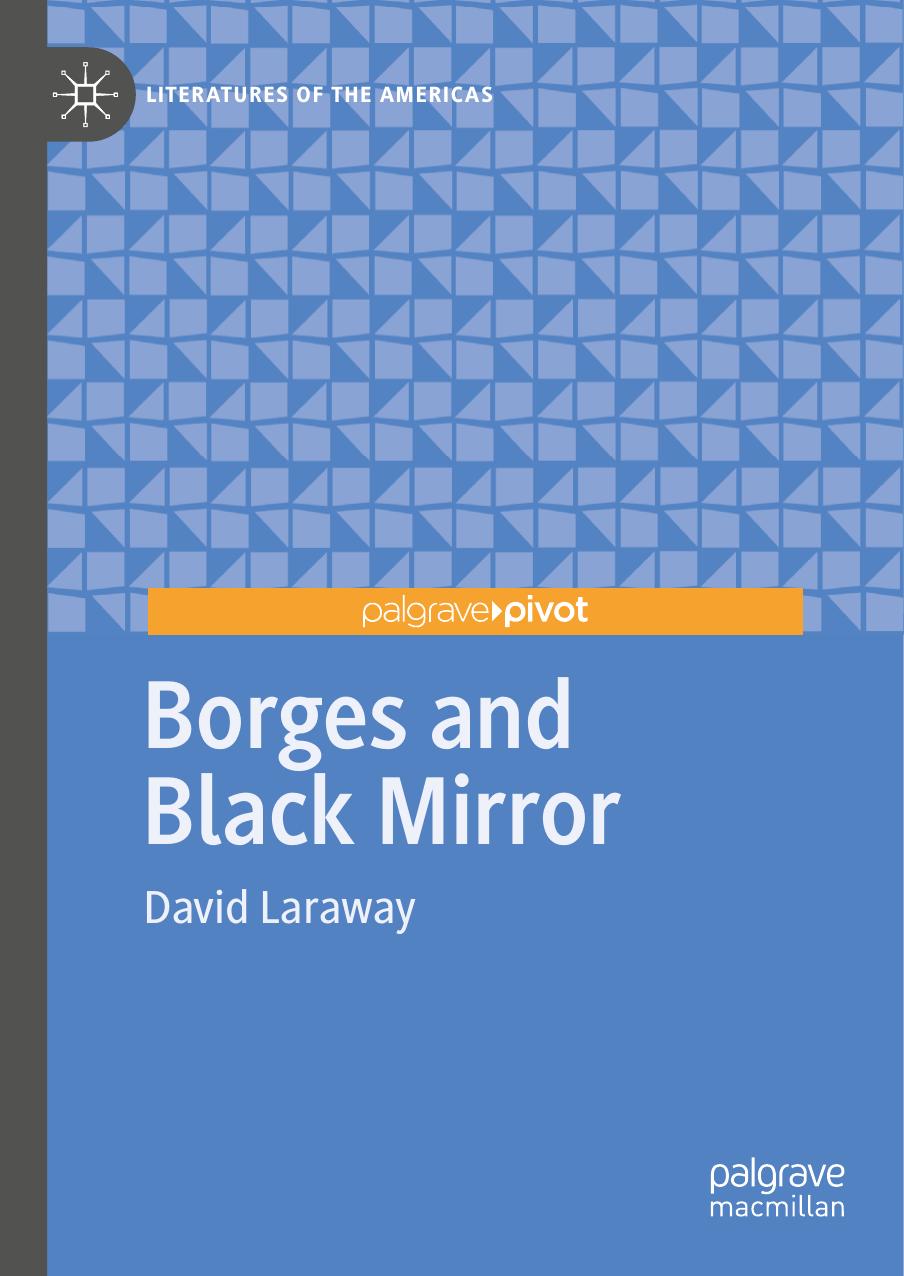Borges and Black Mirror by David Laraway

Author:David Laraway
Language: eng
Format: epub, pdf
ISBN: 9783030442385
Publisher: Springer International Publishing
In short, as Dahlmann’s own story continues to evolve toward its inexorable, if ambiguous, conclusion, his future seems to have been shaped—perhaps even overdetermined—by the contours of a highly idealized past crafted for him personally out of fragments of recollection, fantasy, and half-forgotten books. This why the narrator can say, as Dahlmann, knife in hand, prepares to meet his destiny, that “had he been able to choose or dream his death that night, this is the death he would have dreamed or chosen” [“si él, entonces, hubiera podido elegir o soñar su muerte, ésta es la muerte que hubiera elegido o soñado”] (CF 179/OC 1.530). Had his life been a play and he its author, Dahlmann could not have written a more perfect script.
To be sure, the artfulness of this script manifests itself in strange ways. Dahlmann appears at times to be on the cusp of awareness of the curious form in which the elements of his ordinary experiences have been sublimated and yet his engagement with them never quite reaches the threshold of consciousness. Rather, these details serve to bathe his experiences in a haze, as if the universe itself had determined to engulf him in a highly stylized reality that somehow comported perfectly with his desires. Ironically, Dahlmann regards this luminous sheen of the world as an indication that he has finally managed to leave behind the artifice and falsity of his previous mundane existence as a librarian in exchange for something more pure, more authentic, something almost more real than reality itself. Once he makes himself comfortable on the train that will take him to the south, his first impulse is to pick up the same book, The Arabian Nights, that he had been inspecting when he originally suffered the traumatic head injury. However, as a token of his triumph over his earlier misfortunes, Dahlmann decides to close the book instead, allowing himself “simply to live” [“se dejaba simplemente vivir”] (CF 176/OC 1.527).13 Dahlmann’s closing of the book and his attendant determination “simply to live” suggests he dwells now in an almost Heideggerian mode, unburdened by the ballast of an overly intellectualized engagement with the world and relishing his triumph over “the frustrated forces of evil” [“las frustradas fuerzas del mal”] (CF 176/OC 1.527) as he undertakes his journey to the south.
But in what does this living consist? It is not only that the very perfection of the artifice itself signals that he might be inhabiting a simulation or dream: that much could have been readily inferred from the evidence for the second of the two “authorized” readings of the story to which we have already alluded. Rather, the uncanny integrity and coherence of the simulation suggests that it is driven by something like the logic of nostalgia, which, as an indirect form of disclosure of the virtual, gives a particular shape and physiognomy to one’s experience. The central idea is this: taking the impoverishment of our current moment as a point of departure, we seek to remedy the present’s perceived deficiencies by appeal to a highly stylized version of the past.
Download
This site does not store any files on its server. We only index and link to content provided by other sites. Please contact the content providers to delete copyright contents if any and email us, we'll remove relevant links or contents immediately.
| Ancient & Classical | Arthurian Romance |
| Beat Generation | Feminist |
| Gothic & Romantic | LGBT |
| Medieval | Modern |
| Modernism | Postmodernism |
| Renaissance | Shakespeare |
| Surrealism | Victorian |
4 3 2 1: A Novel by Paul Auster(11048)
The handmaid's tale by Margaret Atwood(6852)
Giovanni's Room by James Baldwin(5878)
Big Magic: Creative Living Beyond Fear by Elizabeth Gilbert(4723)
Asking the Right Questions: A Guide to Critical Thinking by M. Neil Browne & Stuart M. Keeley(4574)
On Writing A Memoir of the Craft by Stephen King(4213)
Ego Is the Enemy by Ryan Holiday(3991)
Ken Follett - World without end by Ken Follett(3972)
The Body: A Guide for Occupants by Bill Bryson(3801)
Bluets by Maggie Nelson(3710)
Adulting by Kelly Williams Brown(3670)
Guilty Pleasures by Laurell K Hamilton(3586)
Eat That Frog! by Brian Tracy(3514)
White Noise - A Novel by Don DeLillo(3434)
The Poetry of Pablo Neruda by Pablo Neruda(3367)
Alive: The Story of the Andes Survivors by Piers Paul Read(3310)
The Bookshop by Penelope Fitzgerald(3225)
The Book of Joy by Dalai Lama(3217)
Fingerprints of the Gods by Graham Hancock(3212)
